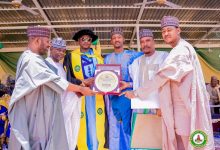A Comprehensive Guide on How to Become a Political Scientist In The World Politics.
Political scientist/Political science.

A Comprehensive Guide on How to Become a Political Scientist
Introduction
Political science is a fascinating field that delves into the intricacies of government, politics, policies, and the behavior of societies. If you’re interested in understanding how societies are governed, the dynamics of power, and the impact of policies, becoming a political scientist might be the perfect career path for you. In this blog post, we will walk you through the steps to become a proficient political scientist and make a meaningful contribution to the world of politics and governance.
Step 1: Education and Foundation
- Choose Your Educational Path: To become a political scientist, you’ll need a strong educational foundation. Start by obtaining a bachelor’s degree in political science or a related field such as international relations, public administration, or sociology.
- Build a Solid Academic Record: Focus on maintaining a high GPA and engaging actively in your coursework. Participate in class discussions, research projects, and seminars to develop a deeper understanding of political concepts.
Step 2: Specialization and Advanced Study
- Select Your Area of Specialization: Political science is a broad field with various sub-disciplines such as comparative politics, international relations, political theory, public policy, and more. Identify the area that intrigues you the most and aligns with your career goals.
- Pursue a Master’s or Ph.D.: For more advanced roles and a deeper understanding of your chosen specialization, consider pursuing a master’s or a Ph.D. in political science. This step is particularly important if you’re aiming for academic positions or high-level research.
Step 3: Research and Skill Development
- Develop Strong Analytical Skills: Political scientists require exceptional analytical skills to interpret data, understand complex policies, and analyze political events. Engage in data analysis, quantitative and qualitative research, and critical thinking exercises to refine your skills.
- Conduct Original Research: Engage in independent research projects related to your chosen specialization. Publishing your research in academic journals or presenting at conferences can enhance your credibility and visibility in the field.
Step 4: Networking and Practical Experience
- Engage in Internships: Gain practical experience through internships with government agencies, non-profit organizations, think tanks, or political campaigns. Practical exposure will provide you with insights into the real-world application of political theories.
- Attend Conferences and Workshops: Participate in political science conferences, workshops, and seminars to meet professionals in the field, exchange ideas, and stay updated on the latest research and trends.
Step 5: Career Opportunities
- Academic Careers: If you pursue a Ph.D., you can aspire to become a professor or researcher at universities. This path involves teaching, conducting research, and publishing scholarly works.
- Policy Analysis and Consulting: Work as a policy analyst for government agencies, think tanks, or consultancy firms, where you’ll analyze policies, provide recommendations, and contribute to informed decision-making.
- Political Journalism: Combine your political expertise with writing skills to become a political journalist, covering elections, policy changes, and political events for media outlets.
- International Relations: If you’re fascinated by global politics, consider working in international relations, where you can contribute to diplomacy, conflict resolution, and global governance.
Choosing Your Educational Path to Become a Political Scientist
Embarking on a journey to become a political scientist is an exciting endeavor that starts with a solid educational foundation. In this section, we will explore the key steps to help you choose the right educational path for your aspirations.
1. Bachelor’s Degree: Lay the Groundwork
The first step in your educational journey to becoming a political scientist is obtaining a bachelor’s degree. Here’s how to make the most of this foundational phase:
Select a Relevant Major: While political science is the most direct path, related fields like international relations, public administration, sociology, and economics can also provide valuable insights into political dynamics.
Diverse Coursework: Take a range of courses that cover different aspects of political science, such as comparative politics, political theory, public policy, and research methods. This will help you discover your specific interests within the field.
Engage Actively: Participate in class discussions, group projects, and extracurricular activities related to politics. Engaging actively will deepen your understanding and broaden your perspective.
2. Master’s Degree: Specialization and Expertise
For those looking to deepen their knowledge and specialize in a particular area of political science, pursuing a master’s degree is the next step:
Identify Your Passion: Determine the specific area within political science that captivates you the most, whether it’s international relations, public policy analysis, or political theory.
Research Programs: Look for master’s programs that offer a strong curriculum in your chosen specialization. Consider factors such as faculty expertise, research opportunities, and access to relevant resources.
Build a Network: Engage with professors, researchers, and fellow students in your chosen field. Networking can open doors to research collaborations and career opportunities.
3. Ph.D.: The Academic Journey
If you’re driven by a desire to contribute original research, influence policy, and teach at the university level, pursuing a Ph.D. in political science might be the right path for you:
Refine Your Research Interests: By this stage, you should have a clear understanding of your research interests. Focus on a specific topic or question that hasn’t been extensively explored.
Graduate Programs: Research Ph.D. programs that align with your research interests and career goals. Consider factors such as faculty expertise, research facilities, and funding opportunities.
Publish and Present: Engage in original research and aim to publish your findings in academic journals. Presenting your research at conferences can enhance your reputation within the academic community.
Building a Solid Academic Record on Your Path to Becoming a Political Scientist
A strong academic record is the cornerstone of your journey to becoming a successful political scientist. In this section, we’ll guide you through essential strategies to build a solid academic foundation that will set you on the path to success.
1. Excel in Your Courses:
- Stay Organized: Keep track of assignments, deadlines, and class materials to ensure you’re always on top of your coursework.
- Participate Actively: Engage in class discussions, ask questions, and offer thoughtful insights. Active participation shows your dedication and helps you grasp complex concepts.
- Seek Help When Needed: Don’t hesitate to ask for clarification from professors or peers if you’re struggling with a particular topic. Universities often offer tutoring services as well.
2. Maintain a High GPA:
- Prioritize Studying: Allocate sufficient time for studying, reviewing notes, and completing assignments. Consistency is key to maintaining a good GPA.
- Time Management: Develop effective time management skills to balance coursework, projects, and extracurricular activities.
- Use Study Techniques: Experiment with different study techniques such as summarizing, mind mapping, and practice tests to enhance your retention and understanding.
3. Engage in Research and Projects:
- Join Research Groups: Participate in research groups or projects related to political science. This hands-on experience will deepen your understanding and expose you to real-world applications.
- Independent Projects: Undertake independent research or projects related to political topics that interest you. This demonstrates initiative and dedication to the field.
- Capstone Projects: Many programs include capstone projects that allow you to apply your knowledge and skills to a substantial research or practical endeavor.
4. Cultivate Critical Thinking:
- Question Assumptions: Develop the habit of critically analyzing information, theories, and arguments. Don’t take things at face value; dig deeper to understand the underlying nuances.
- Evaluate Sources: Learn to discern credible sources from unreliable ones. This skill is essential for conducting rigorous research.
- Challenge Your Views: Engage with diverse perspectives and be open to changing your viewpoints based on evidence and reasoned arguments.
5. Build Strong Writing Skills:
- Practice Writing: Regularly write essays, research papers, and reports to hone your writing skills. Clear and concise writing is crucial for communicating complex ideas effectively.
- Proofreading: Edit and proofread your work meticulously to eliminate grammatical errors and ensure clarity.
- Cite Properly: Learn the appropriate citation style (such as APA, MLA, or Chicago) for your field and use it consistently in your written work.
6. Network and Connect:
- Engage with Professors: Build relationships with your professors by attending office hours, asking questions, and seeking guidance. They can offer valuable insights and mentorship.
- Connect with Peers: Collaborate with classmates on projects, join student organizations related to political science, and attend academic events to expand your network.
Choosing Your Area of Specialization in Political Science: Navigating the Path Ahead
Selecting a specialization within the field of political science is a pivotal decision that will shape your academic journey and future career. In this section, we’ll guide you through the process of choosing your area of specialization, ensuring that you find the perfect fit for your interests and aspirations.
1. Reflect on Your Interests:
- Self-Assessment: Take time to reflect on your interests and passions within political science. What topics or issues have consistently intrigued you?
- Current Events: Consider the current political landscape and global events. Are there specific areas that you find yourself drawn to when reading news articles or analyses?
- Conversations: Pay attention to discussions you have with peers, professors, or mentors. Your engagement in these conversations can reveal areas that resonate with you.
2. Explore Sub-Disciplines:
- Comparative Politics: This specialization focuses on comparing different political systems, governments, and societies. It delves into questions about governance, democracy, authoritarianism, and political behavior.
- International Relations: Study the interactions between countries, international organizations, and global issues. Topics include diplomacy, conflict resolution, international law, and globalization.
- Political Theory: Analyze political ideologies, philosophical foundations, and the evolution of political thought. This area delves into questions about justice, rights, liberty, and the role of government.
- Public Policy: Concentrate on the creation, implementation, and evaluation of public policies. This specialization involves understanding policy analysis, advocacy, and the impact of government decisions on society.
- Public Administration: Focus on the management and operation of government organizations. This area covers topics such as bureaucracy, public management, and organizational behavior.
3. Consider Your Long-Term Goals:
- Academic Pursuits: If you’re considering a career in academia or research, choose a specialization that aligns with your research interests and offers opportunities for in-depth study.
- Career Opportunities: Different specializations can lead to various career paths. For example, international relations might be suitable for roles in diplomacy, while public policy is relevant for policy analysis roles.
- Passion and Impact: Select a specialization that genuinely excites you and where you believe you can make a significant contribution. Passion drives dedication and excellence.
4. Seek Guidance:
- Consult Professors: Reach out to professors in your chosen field or areas of interest. They can provide valuable insights, recommend resources, and guide you toward suitable specializations.
- Mentorship: Seek mentorship from professionals working in the field. Their experiences can help you gain a better understanding of the day-to-day realities of different specializations.
5. Flexibility and Evolution:
- Interdisciplinary Approach: Don’t hesitate to explore interdisciplinary connections. Political science intersects with fields like economics, sociology, law, and psychology, offering unique perspectives.
- Evolution of Interests: Your specialization might evolve over time. Stay open to new ideas and adapt your focus if you discover new interests within political science.
Conclusion
Becoming a political scientist requires dedication, education, research, and practical experience. By following the steps outlined in this guide, you can develop the skills and knowledge needed to make a meaningful impact in the world of politics and governance. Whether you’re interested in academia, policy analysis, journalism, or international relations, the field of political science offers diverse and rewarding career opportunities for those passionate about understanding and shaping political landscapes.
arewanahiya.com







